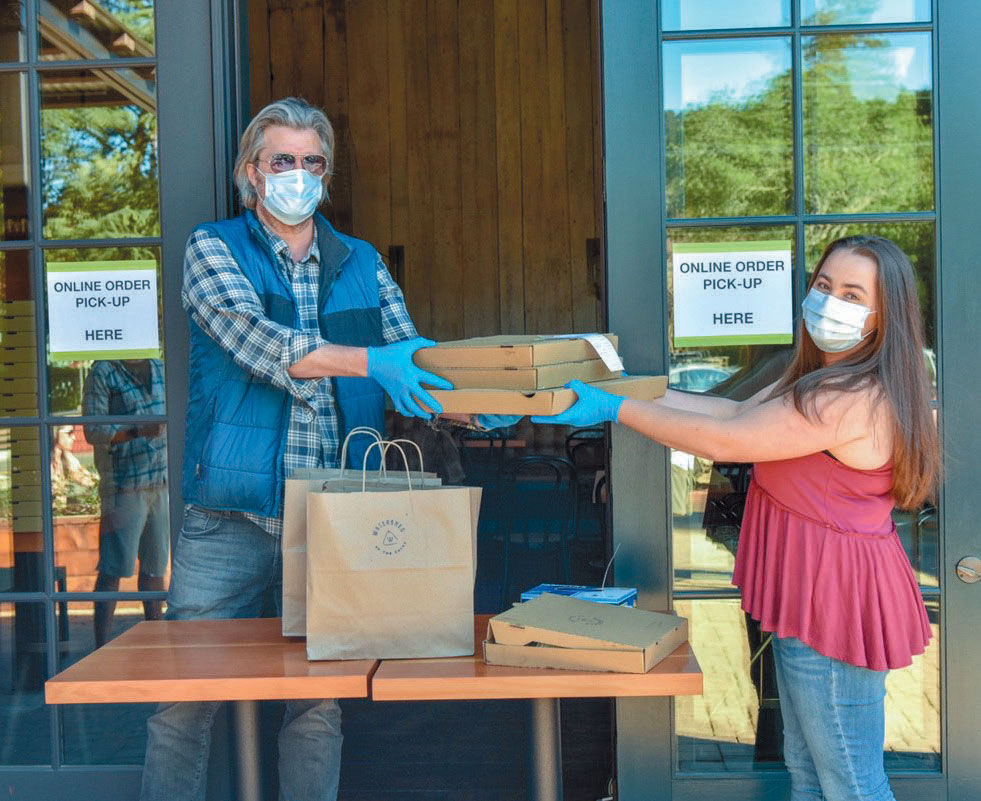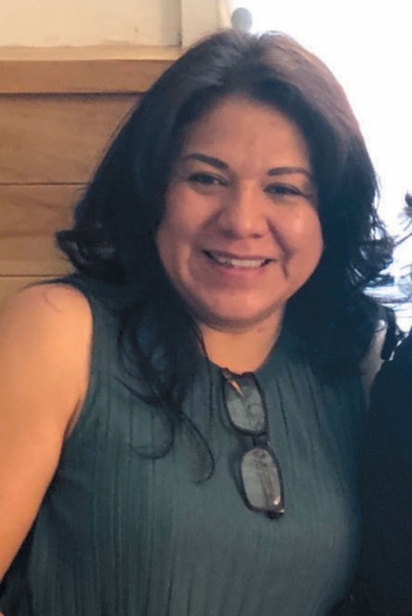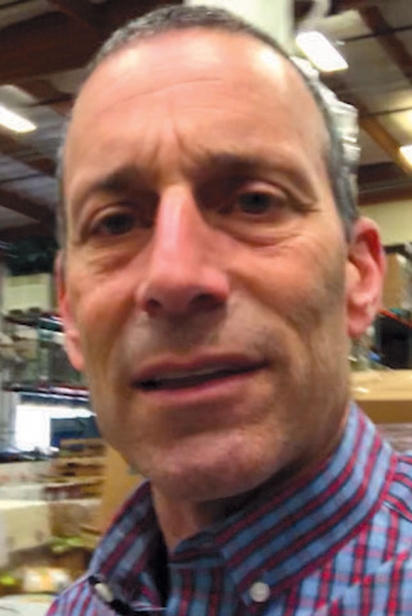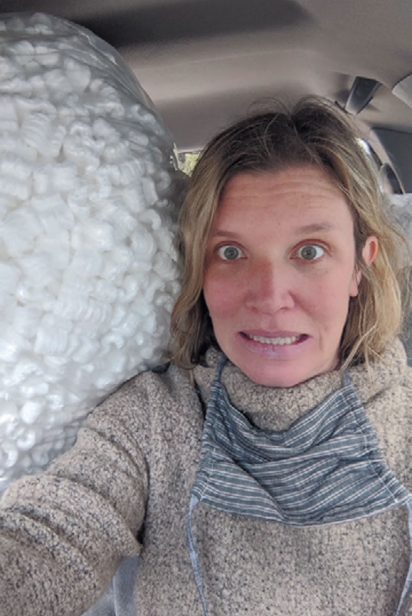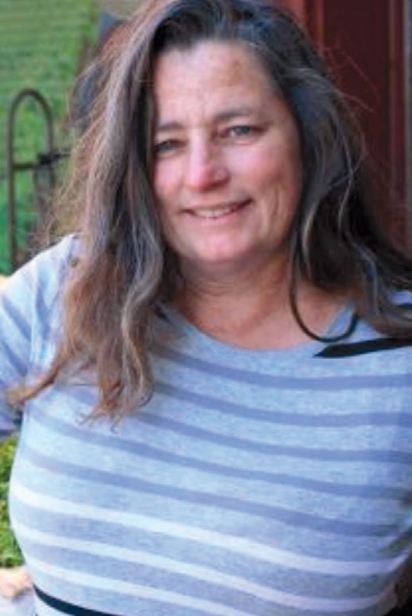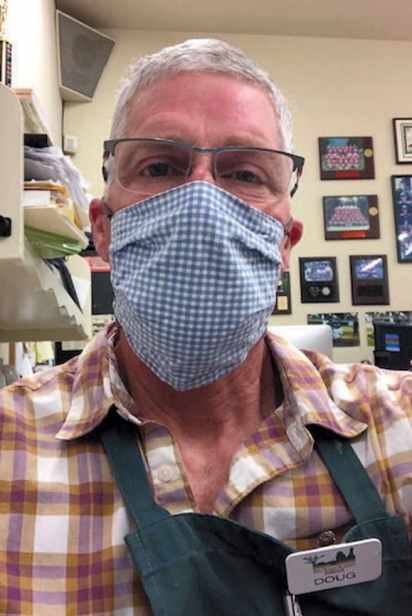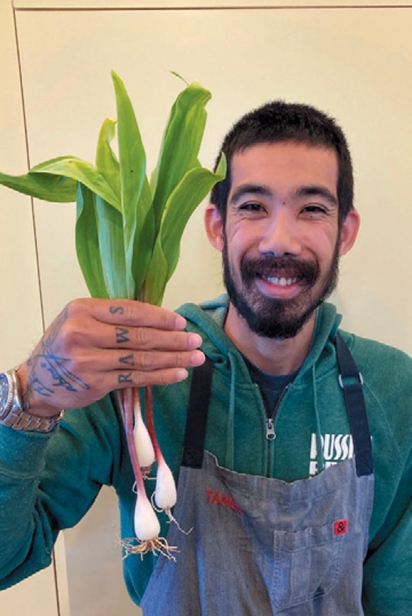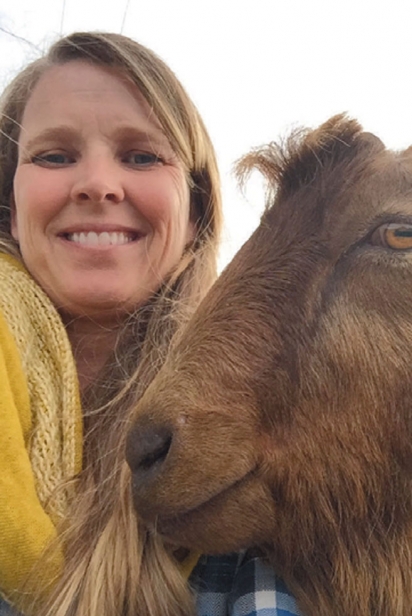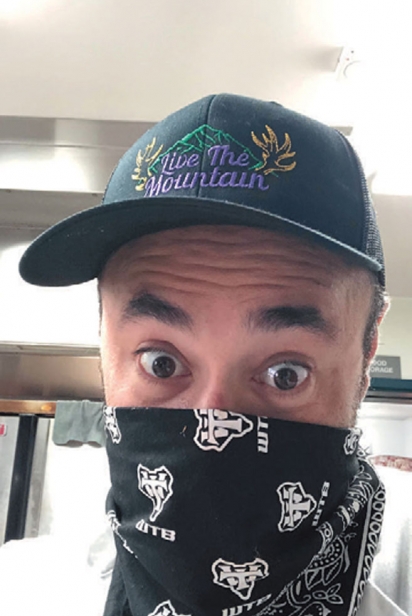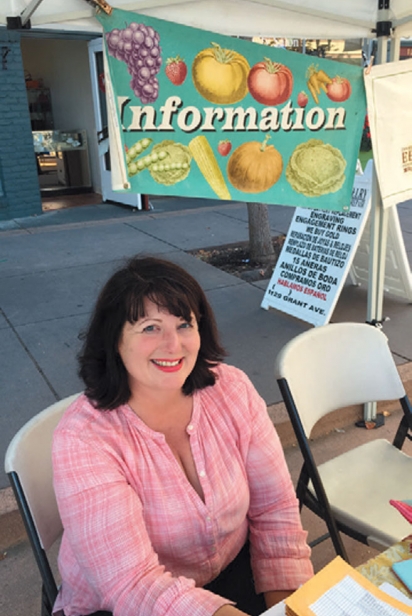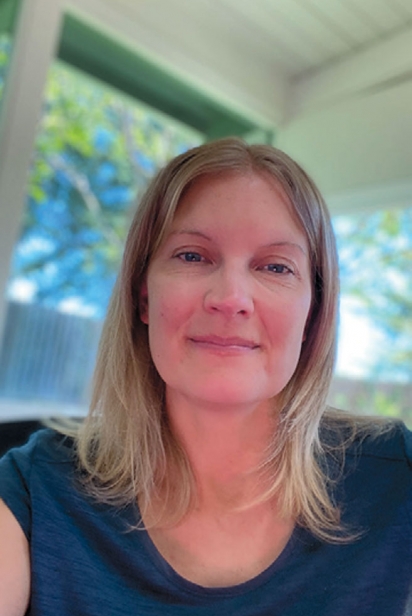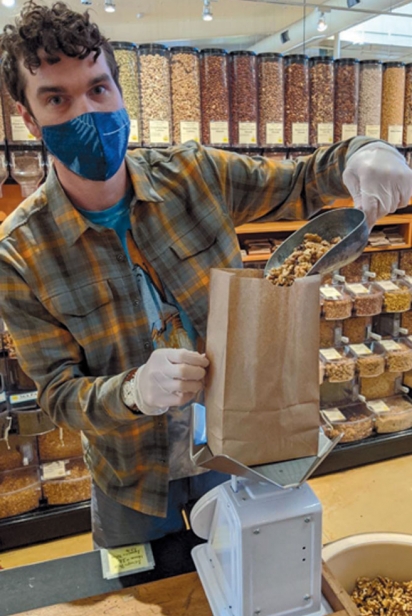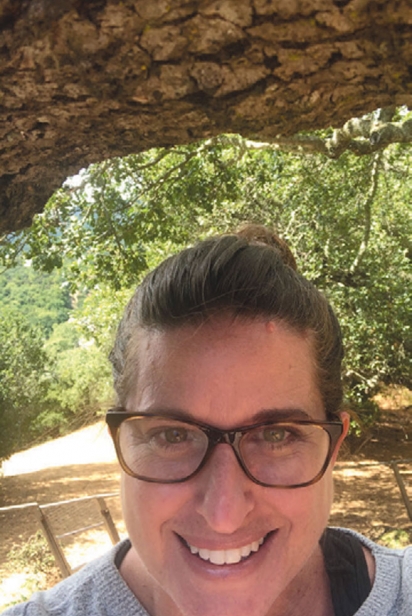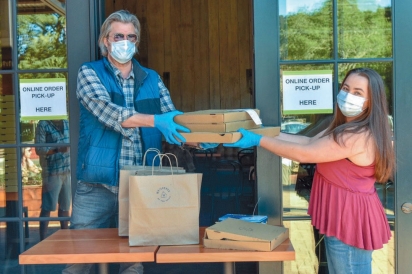The Great Pandemic Pivot of 2020
The novel coronavirus has forced many small businesses to adapt—or die. Farmers have turned to home cooks to replace their restaurant customers. Chefs now feed first responders. Distilleries switched to making hand sanitizer. Wineries now host virtual tasting rooms. Curbside pickup, contactless delivery, socially distanced shopping, quarantine cocktails to go: This is the lingo of the “new normal.”
In this new normal, oysters are air freighted to homes. Grocery shopping takes place under cover of a mask. A trip to a farmers’ market allows looking, but no tasting or touching. Food banks offer drive-through, pre-bagged pickup and pop-up food pantries sprout. Delivery drivers drop 50-pound bags of flour at home bakers’ front doors.
COVID-19 hasn’t killed innovation. A nonprofit program for essential workers that also supports local restaurants was started by a high school senior who saw a need and filled it. Out-of-work cooks have scurried to stay afloat, using their skills to craft fresh pasta and fried chicken, offering comfort food for folks staying home.
In the following pages farmers, food and drink producers, chefs, anti-hunger advocates and grocers describe in their own words how they’ve adapted to the demands of our times. What do they all have in common? They’ve been hustling hard for three months—and counting.
Interviews edited for clarity and brevity.
VERONICA SALAZAR
Owner • El Huarache Loco, Larkspur
We had to lay everybody off at the restaurant. These are people with families to feed, some of whom aren’t eligible for unemployment. It’s been incredibly stressful. We care about our employees. Of the 18 people let go, we’ve been able to bring back four so far. But people can’t wait, some people have found other jobs. They’re the lucky ones. We did a GoFundMe and everything from that went to the staff.
We are fortunate we still have our stand at the Alemany Farmers’ Market in San Francisco, where we live. That’s just me, my husband and our kids. We have a loyal following there, people who come for a taste of Mexico City. I’ve been in business for 15 years. Slowly, steadily we got the word out. We built something.
Business was starting to pick up, then we had to close early some days because of the protests, and not knowing exactly what was going to happen. Nobody plans for this—any of this.
I’m fortunate to be a part of La Cocina [a nonprofit culinary business incubator in San Francisco]. They have been doing everything they can to help the La Cocina businesses. They have included us in their community food boxes—that’s like 150 or 200 orders at a time. It all helps. But it’s not enough.
We don’t qualify for PPP (Paycheck Protection Program) but I’m proud to say we’ve paid all our employees’ wages and vendor bills. Even if there isn’t money for me, we make sure the staff and the suppliers are paid.
March was the last time we were able to pay rent for the restaurant. We’ve been talking with our landlord, who seems willing to work with us and told us not to worry. But I do worry. Every morning I wake up and pray. I ask God to give us one more chance, one more opportunity. We are grateful for all the support—from our landlord, La Cocina, our customers—and we just have to hold on to hope.
DAVID GOODMAN
CEO • Redwood Empire Food Bank, Santa Rosa
We are first responders in this crisis, as we have been during floods and fires and public safety power shutdowns. We run towards disasters, not away from them.
On average, prior to COVID we distributed about 10,000 emergency food boxes a month to families. In April alone we distributed 40,000.
We have 70+ staff and 8,500 volunteers, so it’s a big challenge to keep all our people a safe distance apart while doing the work we need to do to get people food. We were fortunate that Sonoma Country Day School donated their parking lot as a staging area. And we were also fortunate to have the National Guard help with distribution. Drive-through distribution is here to stay. There are downsides to clients not having choice, but contactless car pickup is a little more anonymous, and some people are more comfortable with that.
This first wave has been like a tsunami but another wave is coming. We had the cash-based-economy workers first, people who live paycheck to paycheck who lost their jobs overnight. Then come people who don’t self-describe as poor, who typically haven’t accessed services. When savings and unemployment run out and credit cards get maxed out, and there’s no work, the pain begins.
Running out of food at the food bank is a concern. If we don’t have food we’re irrelevant. But food banks know how to stretch a dollar like no other entity. And we were well prepared for this.
One thing that unites us all is time: There is never enough of it. Volunteers are giving up their most precious commodity to help people they will likely never meet. There is a ferocity that you see from frontline staff and volunteers during these times. It’s impressive.
Because unemployment is impacting so many people, empathy is uncapped and starting to flow. No longer is hunger about someone else. People see themselves.
JENNY GRIFFO
Co-owner • Griffo Distillery, Petaluma
We’ve been fortunate to have a product that has been really needed during this time. We make alcohol that we can turn into sanitizer to keep people safe. Normally we make delicious, award-winning craft spirits. But life isn’t normal anymore.
Our staff immediately got on it: We turned 80% of our production over to emergency sanitizer and put out about 30,000 gallons in 2.5 months. We also started a program where first responders and other at-risk individuals could drive up and get six ounces of sanitizer free each day.
We’re exhausted and have had to stretch to meet demand. The hardest thing was 33 days in a row with an average workday of 16 hours—and juggling our kids being at home with distance learning (don’t get me started!).
A silver lining is being allowed to sell our spirits direct to consumers— this has been revolutionary for us. Distilleries in California are putting pressure on Sacramento to make these temporary changes permanent. They always said it couldn’t work, but here we all are, overnight, making it work.
We are doing a GoFundMe to support the huge amount of sanitizer we are getting to first responders and underprivileged communities. The desperation for a product that should be easy to come by breaks our hearts: the homeless shelter with zero sanitizer and panicked staff; the tribal nation with massive mortality rates calling us for help because they literally can’t find any; nurses looking to gift sanitizer to colleagues.
It doesn’t have to be this way. There is more than enough alcohol in this country to provide sanitizer to everyone who needs it. We need to fight like hell to make sure that we have a government that meets the needs of this crisis and those yet to come. Lives literally depend on it.
ANNABELLE LENDERINK
Co-manager • Star Route Farms, Bolinas
Our restaurant business—we have around 100 restaurants that buy 80% of our produce—evaporated overnight when the shelter-in-place orders shuttered Bay Area restaurants. We immediately started packing produce boxes for home consumers.
We were lucky to have the University of San Francisco, which owns the farm, mobilize their community, distribute produce boxes on campus and build a website so we could process online orders. If we didn’t have all this technology it would be really hard. Things really took off: The boxes are distributed to around 16 sites a week, including some regular restaurant clients like Watershed in Mill Valley and Parkside in Stinson Beach.
The greatest challenge right now: figuring out the new daily pattern for getting things done, what to plant, and having enough help to get it all done. There is so much more labor involved, packing on the farm but also to serve the increased volume of shoppers at the three farmers’ markets we attend [previously just 20% of their sales]. We have had to put more people on there and were lucky to find them. The skilled field labor is harder to find.
We are planting different varieties—less baby stuff—both because it takes less time to pick and also because it tends to hold better. We were basically a lettuce salad farm, and we have had to diversify because people want a variety of vegetables in their produce box.
Restaurants are reopening, but I think our CSA box is here to stay. We are hoping to have a hybrid model for the future.
In spite of it all, being out in my garden or in the fields and seeing things grow still soothes me.
DOUG CANEPA
Co-owner • Mill Valley Market, Mill Valley
Curbside pickup has been a smashing success. We have a very simple website for ordering and customers appreciate the contactless shopping. That option will continue when this pandemic is over.
I’ve been organizing a lot of the online grocery orders, working six, seven days a week for 15, 16 hours a day. It’s been intense.
Customers have been fantastic: Everybody is keeping cool, appreciative, being kind and courteous. With all the protections we’ve had to put in place, people don’t complain; they understand we’re doing it for everyone’s safety.
We’ve had to go outside of our normal channels to source. Toilet paper, paper towels, flour, yeast and sugar have all been hard to find at times. That was stressful: We didn’t like to see our shelves empty.
Mill Valley Market was started in 1929. We are a proud Italian family-run business; we haven’t asked for any financial assistance. We believe that help should go to those who need it and we’re doing fine. Business is up considerably, but where things finish up, that’s anyone’s guess. We don’t know what’s coming. I joke getting through this pandemic has taken maybe five or ten years off my life.
What we experienced from the power shutdowns last year—and the pandemic just reinforced this—is that we are an essential service for our community. We had a generator and provided charging stations, in addition to groceries.
I can’t say enough about our employees—we have about 50—who really stepped up. They gave up their time with family to help in the store and serve our customers. We have been giving them twice the industry average in hazard pay—$4.50 more an hour—we couldn’t have done this without them. I’m proud of all of us. We still love what we’re doing.
JOSHUA TANGO
Chef • Tango with Chef, St. Helena
I started my own business out of necessity: I got laid off from both my jobs March 15. Neither of those is coming back.
I’d been thinking about starting my own food business, but I’d been working two jobs, grinding, and never had the time to do the research to start it. But I was, like: Shit, I better figure this out to survive. I didn’t have a job and nobody was going to hire me. I’ve applied for unemployment; haven’t heard a word yet. Still waiting on my stimulus check, too. It’s infuriating.
I’ve been cooking for eight years—I’ve done stints at The French Laundry, Charter House and Redd Wood.
I figured: I know how to make pasta, I love making it, so I started there. Squid ink spaghetti, ramp fettucine, Bolognese and tomato sauce. I deliver it myself. My egg supplier is Taramasso Ranch, a local business that produces amazing quality eggs that top restaurants use. They’re selling to the public now, too.
It’s been going well—sometimes I sell out—it’s been mostly word of mouth. People really appreciate having a fresh, homemade dinner they can get on the table in minutes.
Some high-profile chefs haven’t kept their hourly staff, and they’re the people who make restaurants a success. Surely people like that have made enough money to help their employees out. It’s mind blowing, to be honest. Restaurants are going to need cooks again and I hope they don’t go back to the same conditions. They should hold out for better pay and benefits. If they don’t, nothing will change in the hospitality industry, and people need to make a living.
I’m trying to make my pasta affordable. I’ve never made that much money. I get it. I couldn’t afford to eat at the restaurants I worked at. It’s the best pasta I can make, but at the end of the day it’s just pasta. And everybody needs to eat.
JOHN FINGER
Founding Partner & CEO • Hog Island Oyster Co., Marshall
It was pretty hairy in the beginning: We went from moving at 100 miles an hour to zero in a couple of days. Then we quickly realized we had a lot to do to survive. We were a week away from opening a new restaurant in Larkspur. We’d just hired and trained 30 people. Then we had to lay off 250 workers across the company—mostly restaurant staff, but at the farm too—it was horrible. We got down to a skeletal crew at the farm. We had never had to do anything like that in 37 years.
Ironically, we’d gotten into the restaurant business to diversify and stay healthy, and that industry was the hardest hit. We got approved in the second round of PPP (Paycheck Protection Program). That was crucial; without it I’m not sure we’d still be here. We’ve been able to bring back about 100 employees.
We got fired up about things that were maybe on the back burner or we weren’t crazy about because of carbon footprint, like mail order.
Our crew sourced compostable, reusable shipping containers; that’s more us. We started shipping oysters all over the country and it really took off. Right before Mother’s Day and Memorial Day we had back-to- back days shipping 150 boxes of shellfish. We also began offering local delivery, curbside pickup and meal kits.
We’re fortunate that all five of our places have outdoor seating and our landlords are working with us to increase that wherever possible. Our greatest worry is our SF Ferry Plaza restaurant: It’s our biggest and most expensive location, and those office workers aren’t coming back, neither are tourists for the foreseeable future. We’ve always been about a convivial, celebratory atmosphere: feeding people elbow to elbow in a lively, loud, packed restaurant environment.
We’re at about 25% of normal business. The ripple effect on the farm will come down the road. My motto right now comes from my old basketball coach: Keep moving, stay open.
TAMARA HICKS
Co-owner • Toluma Farms & Tomales Farmstead Creamery, Tomales
As a goat and sheep dairy with 300 animals, we don’t make the same volume of milk as a cow dairy. Usually that’s a disadvantage. But it’s been to our advantage during the pandemic; we’ve felt like we’ve had a measure of control in an out-of-control time. We’ve been ageing a lot of cheese and we’re maxed out on storage. We’re taking a gamble people will buy it. Our product relies on people coming together to socialize at homes and in restaurants.
We’re on 160 acres—we have space for our employees to safely physically distance—though we had never thought about the farm in that way before. Our agritourism—farm stays, dinners, tours—has been the hardest hit part of the business.
Before COVID we sold about 40% of our cheese at farmers’ markets; when the restaurants closed it was more like 90%. The farmers’ markets—AIM in Marin and CUESA in San Francisco—have done an amazing job. It’s been so exhausting for their frontline staff. They could have so easily said “We can’t do this.” But they are truly dedicated to supporting local food producers and that makes all the difference to so many farmers like us.
Grocers like Palace Market in Point Reyes also stepped up when distribution fell apart because of COVID-19.
We started hosting a pop-up market every Friday afternoon in Tomales. There is cheese, beef, lamb, cider and bagels from our other business, Daily Driver in San Francisco. It’s been a nice opportunity to see other food producers.
I can’t slow down much, but COVID has made me stop and look at what’s important. If the pandemic hadn’t happened I don’t think I would have asked my mother, who was living in San Diego, whether she wanted to come up and live near us. Having my adult children home with us has been a silver lining as well. Life is short. It’s good to have the people we love close to us.
GUILLAUME PFAHL
Executive Chef • Conscious Kitchen, Sausalito
We’ve gone from being a school lunch program for Willow Creek Academy in Sausalito and Bayside MLK in Marin City to a feeding program serving the greater community. Once schools closed, we started right away doing curbside pickup for our students. On a big day now, we’re cranking out about 500 meals in my kitchen—for families, hospitals, homeless shelters, health clinics—about twice the amount of food we normally produce. We have partnered with World Central Kitchen to make it happen.
It gets really hot under that mask.
Unfortunately, for safety, everything has to be pre-packaged in individual servings. We try to use a lot of foil and paper bags and serve hot food in compostable containers. We do everything we can to keep the consistency of the food, and make sure it looks like it is put together with care. We’re all about keeping it local and organic and made from scratch.
I am a feeder. That’s what I do. I believe everyone—low-income residents, seniors, school children—has the right to a nutritious hot meal that tastes good.
This pandemic has exposed all the systems that we have to change to make things better in every aspect of our lives. I see us doing this for a long time; I don’t see the need going away any time soon.
KELLY SMITH
Executive Director • Agricultural Community Events Farmers’ Markets, 10 markets in Marin & Sonoma counties
Farmers’ markets seem more popular than ever. Everyone feels safer outdoors and is looking for the immune-supporting foods we offer. It is a great time to support local. Communities are really reflecting on what is essential in their lives.
With the changes each week [around sanitation and safety protocols], it’s a lot more work to keep everyone safe. And we’re bringing in about 60% of our budgeted revenue, because physical distancing regulations don’t allow as many vendor booths. We received PPP (Payroll Protection Program) money, but were denied an EIDL (Economic Injury Disaster Loan).
We created online ordering and curbside pickup that will continue when the pandemic passes and applied for a USDA (U.S. Department of Agriculture) grant to expand curbside pickup capacity. We are still waiting to hear on that.
We need volunteers to help with curbside orders and sanitizing practices. And we need new farmers: The farmers we have are selling out of what they grow. We also need additional funding to help low-income customers, including seniors, obtain healthy foods via curbside pickup and home delivery.
I work a lot, but these times have made me appreciate that I CAN work. The pandemic has put a lot more stress in my life. Distance learning for my ASD [autism spectrum disorder] stepson offers unique challenges. My husband works with me and it has been virtually impossible to turn off work. That said, I deeply appreciate all the farmers and vendors: They do so much to make sure people get food daily. It’s a really beautiful thing.
JOE ZOBEL
Chef & Partner • Fern Bar, Sebastopol
The first year and a half of this restaurant has been challenging. A fire, a flood and now a pandemic aren’t typical hurdles a new business has to overcome during its formative years.
Unfortunately, we had to furlough all our staff in mid-March, following the shelter-in-place order. That was extremely difficult. Three weeks later we started takeout service with a limited menu and crew. Thankfully, I’ve been able to hire back the majority of my kitchen crew.
We are providing a robust bottled cocktail program and we’re rolling out a CSA-style box with produce from local farms as well as housemade sauces, pickles and spice blends to provide additional revenue streams during this uncertain time.
The pandemic has shown how vulnerable our industry is and hopefully some real change can come of it.
Sustainability remains a big question. Restaurant prices need to increase by 30% to adequately compensate staff in an industry that barely squeaks by on razor-thin margins. Convincing people to pay the real value of restaurants will involve a lot of education of the dining public about the realities and cost of eating out. For a long time a lot of chefs, cooks and dishwashers have been marginalized and underpaid.
The weeks we were totally closed were a great time to bond with my two little girls and my wife. The time off allowed me to reflect and take stock of what’s important. I realize that there is more to life than slaving in a restaurant. While this is still my passion, I feel the mental health of chefs and cooks isn’t taken into account as much as it needs to be. Hopefully in “the new normal” we can place more of an emphasis on balance.
LINZI GAY
General Manager • Clif Family Winery, St. Helena
When the tasting room closed, we tried a lot of different approaches to see what would connect with customers. The virtual tastings with our wine educators were an instant hit. They’ve been popular with wine club members, corporate groups and individuals who want a unique online experience. Tasting kits are shipped in advance.
Now we say we can’t believe we weren’t doing virtual tastings and vineyard tours before. Not everyone is fortunate enough to live near or to be able to visit the Napa Valley. We’ve found it’s a great way to expand our reach, share our hospitality. I don’t think they’ll ever go away.
We’re also fortunate to have enough space on site for social distancing, and our food truck. It’s pretty clear that a key to survival in the food and beverage industry right now is being adaptable.
It’s challenging to lead in a time with so many unknowns, except that nothing is going to be the same. What gets me motivated each day is my team: We don’t feel helpless. There are things we can do to help make people’s days brighter; we’re still in the business of hospitality.
NICKY GIUSTO
Miller & Baker • Central Milling & Keith Giusto Baking Supply, Petaluma
It’s been a wild three months, that’s for sure. We didn’t do a lot of direct-to-consumer sales prior to the pandemic—maybe we had about 40 sales a day; now it’s more like 400. We’ve seen a huge rise in our internet sales. We’ve had to ramp up staff and we’re milling 24/7 in Utah. Everybody is at home baking, and when the grocery stores ran out, we felt we had a social responsibility to make sure people had flour.
Our biggest challenges have been with distribution—having enough bags from suppliers, as well as the actual shipping. We had one case of a customer whose package was delivered a day earlier than the tracking information showed, and by the time she got to the boxes the cattle had broken into them. Apparently there was flour everywhere. Luckily she was laughing when she told us. Everybody is working really hard and customers are understanding.
I’ve been doing a lot of tech support—we’ve been fielding a lot of questions from people baking at home for the first time. It’s great to see people experimenting with sourdough, different grains and long-fermented bread that is easier to digest and better for people’s bodies than mass-produced loaves. Baking is a gift, we’re happy to share what we know so people can be successful feeding their families at home.
I hope there’s a renewed appreciation now for the role of the bakery in our community.
LEVI KORVIN
Manager • Good Earth Natural Foods, Fairfax
It was all hands on deck when the panic buying started, even before the actual shelter-in-place order. There isn’t a lot of buffer: We know how to plan for an expected increase in demand—like before Thanksgiving. This is a resilient system, but this was outside the realm of normal and that’s why we started having issues. As someone whose job it is it keep stock on the shelves, it was stressful.
Toilet paper wasn’t really the first thing that caught us by surprise. Strangely enough it was canned tuna. Shelf-stable protein sources were the thing. We also had customers buying a lot of rice and beans, pasta and pasta sauces; all the easy comfort foods.
The most stressful point of service in a grocery store is at the cash register—that’s where people are parting with their hard-earned money. We’ve tried to do whatever we can to not place additional burdens on our cashiers.
Most of our customers have been compliant and understanding— about limited stock, purchasing limits on popular products, waiting in line, wearing a mask, not bringing in reusable bags or containers, not being able to serve themselves from the gravity bins in the bulk department. It just takes a few outliers to color the day. It’s remarkable that in this crisis there would be any backlash to public health and safety measures and respect for others. Some people just don’t want to be told what to do in any situation.
Online ordering is here to stay. But a brick-and-mortar business is part of a community and there will always be customers who want to do their shopping in person—the people who want to choose their own ripe avocado.
LISA PONCIA
Co-owner • Stemple Creek Ranch, Tomales
We lost 99% of our restaurant sales overnight, so we moved as quickly as possible to selling direct to consumers (DTC) on our website, and at farmers’ markets. Thankfully, we already had the DTC channel established, so we were not starting from scratch. There were plenty of complications that we had to deal with behind the scenes, and of course doing this with our team working from home as much as possible was an additional complicating layer.
The logistics of getting our animals processed, the meat cut and wrapped, and product delivered has been quite the challenge. Seeing the grave effects on the restaurant and food-service industries—we have close, personal relationships with our customers—has been devastating. The stress of the unknown has been a lot to handle. Not being able to host events at the ranch, both for our business and for others who rent the space, has been a big loss for us. And we have been dealing with all of this with our kids (8 and 11) at home. We try to be present for them with their own stresses and challenges. It has been quite a few months!
We are hoping that the impact to our bottom line will be a wash. We have the enterprises that were completely wiped out, a direct-to-consumer enterprise that is booming, and an enterprise that is relatively stable: grocery stores and butcher shops.
My husband, Loren, and I run our household and business together, but we have always had a hard line on how we divide and conquer. During the [shelter-in-place], Loren has been mostly at the ranch and in meetings where in-person attendance is required. I have been mostly home with the kids, running back and forth between helping with schoolwork and my home office.
We are so thankful that we have been able to continue working and putting food on the table for our community.
ANWAR HERRON
Chef • Peaches Fried Chicken, Napa
Every chef wants the chance to showcase what they’re good at. But when all your creativity is going to make someone else’s food—there’s no time for that. When everything abruptly stopped, I started thinking about how I could share my talent and monetize myself. Before the pandemic I was the pastry chef at Oenotri in Napa. I had my own catering company, too, but there was no work after the shutdown.
I already had a bit of a following for the fried chicken I had made for dinner parties over the past 10 years. So when I was trying to decide what to do, I figured that feeding people fried chicken makes them happy, so I’d start by making a bucket for five friends. That five turned into 17 when we put it on Facebook. For several weeks I was doing a “Soul Food Sunday” and selling out of 30 buckets of fried chicken I made in my home kitchen.
Now I have a waiting list of 350 people. It’s crazy how quickly this took off. I was doing it for two months and then I got a cease and desist from the City of Napa. I’m getting that rectified; I need to move the cooking to a commercial kitchen. The city is being really helpful with the process— they want me to succeed—a few of those folks are on my waiting list.
I want to serve sides and peach cobbler too. While I’m waiting on the paperwork, I’m perfecting a recipe for mac & cheese that still has that ooey gooey texture by the time it gets eaten out of a takeaway container. Chefs are a little OCD; we want to put out the best product possible.
It’s weird to talk about silver linings during this global pandemic with so many suffering. But I think I’ve found a way to start a small business doing something I love that brings a little joy to people’s days. The pandemic has created great upheaval; a lot of us were left not knowing what to do. As a chef, we tend to find that one thing and lock in on it. I think I found mine at the strangest time.
KYLIE FRAME
Founder • Feed the Frontlines Marin, Mill Valley
Family friends started Feed the Frontlines NYC and I wanted to do something similar here. So I reached out to restaurant owner Ged Robertson [Bootjack Wood Fired, Shoreline Coffee Shop, Watershed]. When he said yes, I started emailing family and friends and spreading the word on social media. We raised more than $50,000 in two months.
At first I was delivering food to hospital workers. Then I realized they were getting a ton of donations and can afford to buy lunch. I wanted to feed essential workers who also experience economic hardship, so I started delivering to grocery store workers, the trash and recycling guys, the people who volunteer at the pop-up food pantry in Marin City, the people staffing the emergency child care centers for essential workers, the staff at San Quentin prison. These people don’t have glamorous jobs and they do so much for us; they should be recognized, too.
I do 95% of the deliveries myself, usually six or seven a week. We’ve delivered over 3,500 meals: breakfast burritos, juice, pizza, salads, baked goods. I’ve learned through trial and error how to budget, manage a complicated spreadsheet and work with people with different communication styles.
People have been so appreciative. Safeway workers brought me a card and flowers and broke into applause when I delivered. It was so sweet I cried. One of the refuse service guys was shocked that I was bringing them chocolate chip cookies at 4:30am. These workers are so grateful to be seen.
It’s been heartbreaking not to have closure at school my senior year. No final classes at Tamalpais High, no last lacrosse game, no graduation ceremony. This has given me a purpose. I’m passionate about education, equity, food security and supporting the local economy.
I’ve learned something doesn’t have to be perfect to get started. Good enough works too. People of any age shouldn’t be afraid to start something. Anyone can do what I did.


